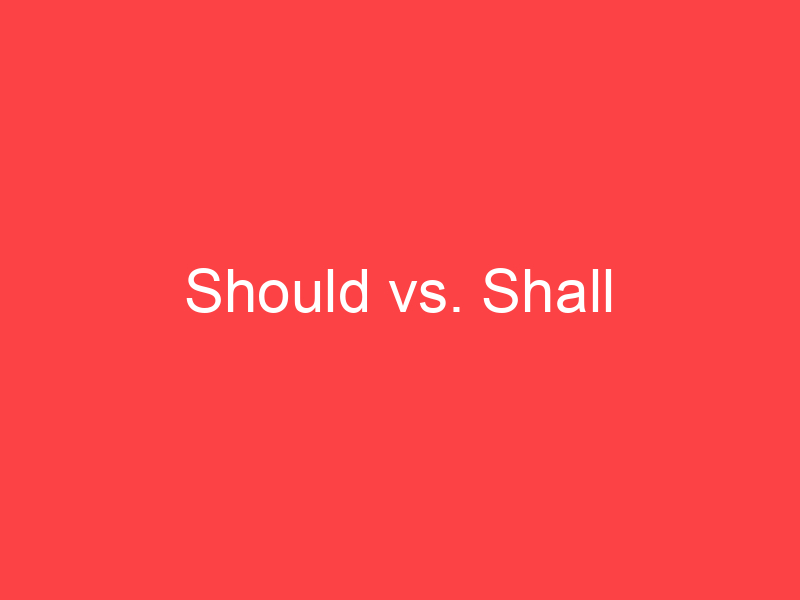-
Should
The modal verbs of English are a small class of auxiliary verbs used mostly to express modality (properties such as possibility, obligation, etc.). They can be distinguished from other verbs by their defectiveness (they do not have participle or infinitive forms) and by the fact that they do not take the ending -(e)s in the third-person singular.
The principal English modal verbs are can, could, may, might, must, shall, should, will and would. Certain other verbs are sometimes, but not always, classed as modals; these include ought, had better, and (in certain uses) dare and need. Verbs which share only some of the characteristics of the principal modals are sometimes called “semimodals” or “pseudomodals”.
-
Should (verb)
Be obliged to; have an obligation to; indicates that the subject of the sentence has some obligation to execute the sentence predicate or that the speaker has some strong advice but has no authority to enforce it.
“What do I think? What should I do?”
“You should never drink and drive.”
“You should always wear a seat belt.”
-
Should (verb)
ought to; speaker’s opinion, or advice that an action is correct, beneficial, or desirable.
“You should brush your teeth every day.”
“I should exercise more often, but I’m too lazy.”
-
Should (verb)
Will be likely to (become or do something); indicates a degree of possibility or probability that the subject of the sentence is likely to execute the sentence predicate.
“When you press this button, the pilot flame should ignite.”
“You should be warm enough with that coat.”
-
Should (verb)
Used as a variant of the present subjunctive.
“If I should be late, go without me.”
“Should you need extra blankets, you will find them in the closet.”
-
Should (verb)
A variant of would when used with first person subjects.
“I should imagine that everything is fine right now.”
“I should be lucky if I were you.”
-
Should (noun)
A statement of what ought to be the case as opposed to what is the case.
-
Shall (verb)
Used before a verb to indicate the simple future tense in the first person singular or plural.
“I shall sing in the choir tomorrow.”
“I hope that we shall win the game.”
-
Shall (verb)
Used similarly to indicate determination or obligation in the second and third persons singular or plural.
“(determination): You shall go to the ball!”
“(obligation): Citizens shall provide proof of identity.”
-
Shall (verb)
Used in questions with the first person singular or plural to suggest a possible future action.
“Shall I help you with that?”
“Shall we go out later?”
“Let us examine that, shall we?”
-
Shall (verb)
To owe.
“rfex|en”

